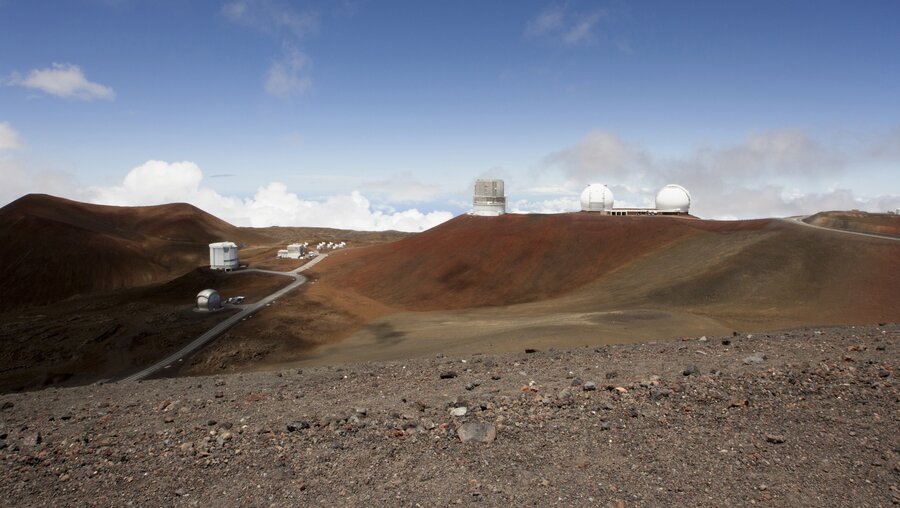Scientists hope court setback doesn't stop giant telescope
Loading...
| HONOLULU
Scientists involved in Hawaii astronomy have a message for the builders of a giant telescope planned for a mountain held sacred by Native Hawaiians: Hang in there.
The state Supreme Court recently invalidated the $1.4 billion project's permit to build on conservation land near the summit of Mauna Kea. The court sent the matter back for a new contested case hearing, which could delay construction by several years. The nonprofit company building the Thirty Meter Telescope hasn't indicated what it will do next. Protesters say they will continue to fight the telescope at every step if officials pursue a new hearing.
If the project dies, not only will that be bad for Hawaii astronomy, but for any high-tech industry considering Hawaii, said Paul Coleman, an astrophysicist at the University of Hawaii's Institute for Astronomy.
"If it's not possible to get around this, then it really kind of shines a bad light on Hawaii," he said. "This will be a global disappointment. I would think it would be very hard for a new project to come here, ever."
A group of universities in California and Canada plan to build the telescope with partners from China, India and Japan. Coleman said he's hopeful the countries involved "feel this is a project worth hanging on for."
After all, astronomers are accustomed to long delays. "One project I was involved in took me five years to get data," Coleman said of various weather and technical issues. "We're kind of used to showing up and not doing what we want to do."
Coleman, who is Native Hawaiian, may never get to use to the telescope if it's built, he said. But a fellow Native Hawaiian in the field, who recently earned her doctorate from the University of Hawaii, could.
"I still think the project is a good project and there's a way we can move forward balancing cultural aspects as well as scientific advancement," said Heather Kaluna, who is the first Native Hawaiian to earn a doctorate in astronomy from the University of Hawaii.
Doug Simons, executive director of the Canada-France-Hawaii Telescope already on Mauna Kea, is concerned that abandoning the project could prevent other Big Island students like Kaluna from educational opportunities in science. Thirty Meter Telescope officials launched the Hawaii Island New Knowledge Fund for STEM education, a fund that will contribute $1 million annually for the 19-year Mauna Kea sublease with the University of Hawaii.
"We don't have that kind of philanthropy flowing into the school community," Simons said. "That would be a huge loss."
Having lived on the Big Island for 30 years, Simons said he sympathizes with protesters' cultural concerns.
"TMT and Mauna Kea have served as something of a focal point in a range of longstanding concerns within the Hawaiian community," he said, adding that he knows protesters are not against science, or the telescope itself.
"It happened to be a telescope," that protesters banded together to oppose, he said. "It could have been something else somewhere else in the islands."
Despite their disagreements about Mauna Kea, Simons said he has had a good relationship with the protesters who maintained constant vigil on the mountain to prevent construction from resuming. "I've always been treated with respect and I've never felt threatened," he said.







